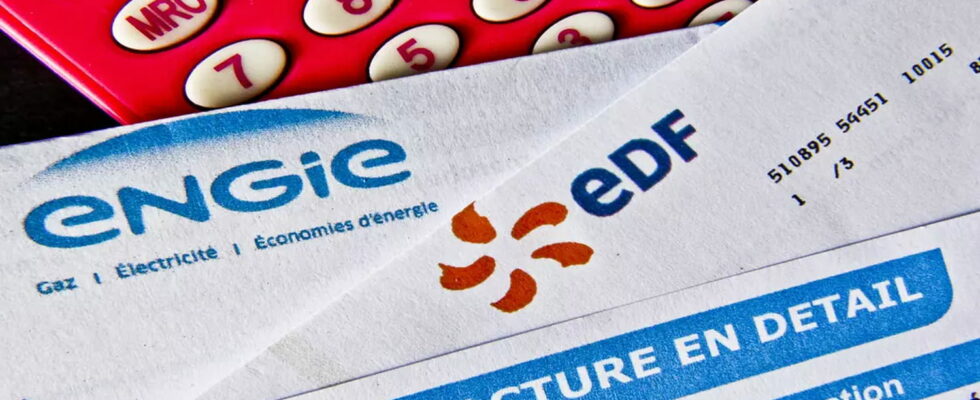In both cases this will have a significant cost to public finances and no compensation has been detailed.
This is one of the major concerns of the French. The rise in the price of electricity is increasingly worrying households. The successive increases have put many families in difficulty, forced to reduce their consumption and cut back (again and again) on other expenses.
If the State has assumed these increases, proposals to stop the surge are flourishing, in the middle of the electoral period. Ideologically opposed, the National Rally and the New Popular Front each have the ambition to lower the bill. To do this, the far right and the union of the left want to use the same lever: taxes applied to the price of electricity. But each training has its own tax.
On the RN side, a promise is made to modify the Value Added Tax (VAT) applied to energy, dropping it from 20% to 5.5%. In fact, a few lines of the invoice already display this reduced rate (the subscription and the CTA). But not the ones that cost the most. These are consumption as well as the main tax (CSPE), subject to VAT at 20%, which the party wants to reduce to 5.5%. Legally, he has the right to do so, even if the European Union will have to definitively validate the measure, since the EU regulates energy taxation. Precisely, Jordan Bardella presented another project, via negotiations to begin with the European Commission “immediately” if the RN wins. The objective set would be to deviate from European electricity pricing rules. According to him, this would “reduce bills by 30%”. On condition of winning the case against Brussels…
On the left, it is one of the two aforementioned taxes that is in the sights (although also indirectly targeted by the RN): the Contribution to the public electricity service (CSPE). This probably doesn’t mean anything to you. This line is listed at the very bottom of your invoice. It is mainly used to finance the energy check. During the energy crisis, the government significantly reduced its amount, to less than one cent per KwH (0.0001€/KwH) in order to compensate for the increase in the cost of producing and transporting electricity. However, the 1er February 2024, the CSPE increased with the aim of bringing it back to its pre-crisis level, rising to €0.021/KwH. This is what caused the bill to skyrocket by 10% at the start of the year. The New Popular Front promises to reduce this tax to its minimum if it obtains a majority in the National Assembly.
Between these two technical proposals, it is difficult to find your way. To help you see things more clearly, The Internet user has created a simulator allowing you to project yourself into each situation. Which change will have the most impact on my bill? Below, simply enter your annual electricity consumption (available on your bill), click on “Compare” and find out which device will help you save more on electricity.
*Calculation based on the Engie “Simple metering supply” offer, at the rates applied on June 1, 2024 and available here. The calculation only takes into account consumption and the Contribution to the Public Electricity Service (CSPE), currently taxed at 20%. The subscription and the Transport Tariff Contribution (CFA) are already taxed at 5.5% and are not taken into account in the total.
In both cases, a few dozen euros can be saved each month. But be careful, these measures are not without consequences on the country’s finances. According to an estimate from the Ministry of Finance, the idea of the RN would remove 4.5 billion euros in revenue from state coffers each year. At this stage, neither Jordan Bardella nor Marine Le Pen have indicated how they wish to compensate for this budgetary hole, if they come to power.
Same on the left. The shortfall for the State was estimated at 6 billion euros per year by the presidential majority (not without ulterior motives) and no compensation lever was presented. Furthermore, the New Popular Front promises to make the first kilowatt hours free for all French people and to implement progressive pricing on electricity: the more we consume, the more we pay. How many free KwH? What prices for which consumption brackets? Again, no one went into detail. However, the measure has been defended since the 2022 presidential campaign.
For their part, Gabriel Attal and the presidential majority have promised to reduce the price of electricity by 15% by next winter. A commitment also made by Bruno Le Maire. But the Prime Minister and the Minister of the Economy are in reality praising a future reduction in regulated sales prices at the European level. It would therefore only be thanks to a change in the market that this decline could take place, which leaves the door open to a further increase if the context changes.

